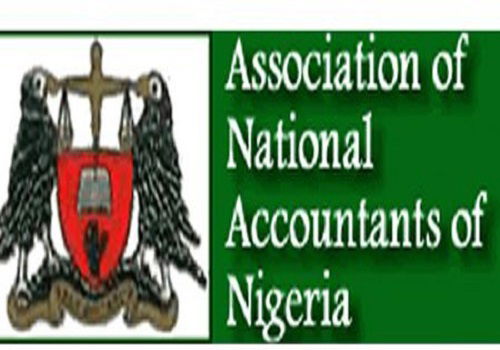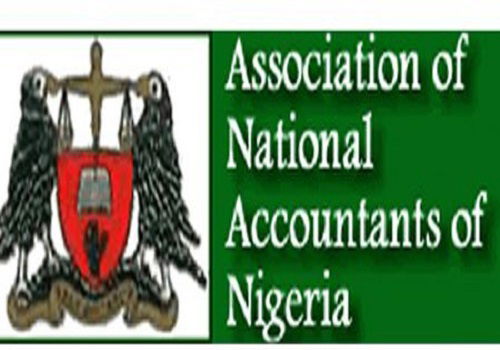ANAN Fellow Advises Accountants to Shun Corruption

ANAN Fellow Advises Accountants to Shun Corruption
A Fellow of the Association of National Accountants of Nigeria (ANAN), Prof. Stephen Ocheni, is advising for Nigerians and accountants to shun corruption. Speaking as a Guest of Honour at the 23rd Annual Conference of Certified National Accountants, in Abuja, he said the implementation of the Treasury Single Account (TSA), Integrated Payroll and Personnel Information System (IPPIS), International Public Sector Accounting Standards (IPSAS), Government Integrated Financial Management System (GIFMIS) and Accounting Transactions, Recording and Reporting System has helped to promote accountability in public accounting. COLLINS NWEZE reports.
Fellow of the Association of National Accountants of Nigeria (ANAN) and Minister of State, Labour and Employment, Prof. Stephen Ocheni, has urged Nigerians, including accountants, to support the Federal Government’s fight against corruption to grow the economy.
He said corruption was one of the greatest obstacles to economic growth anddevelopment in the country and has constrained economic development.
The resultant poverty, infrastructure decay and unemployment in the past years had provoked widespread public dissatisfaction with the performance of past governments.
According to Ocheni, Nigerians are tired of official corruption and its effect is to state the obvious as they clearly marched out in their large numbers and voted into power President Muhammadu Buhari in the 2015 Presidential election.
“Since the coming on board of President Muhammadu Buhari, he had no doubt sufficiently demonstrated and shown the willingness in tackling the menace of corruption with practical and reference examples,” he said.
The Minister, who spoke as a Guest of Honour at the 23rd Annual Conference of Certified National Accountants, said the Federal Government is doing a lot to keep the economy on the right track through the Economic Recovery Growth Plan (EGRP) and other business reforms.
He said to address the challenges of corruption and leakages, many business reforms initiatives were put in place.
He listed the reforms as Treasury Single Account (TSA), Integrated Payroll and Personnel Information System (IPPIS), International Public Sector Accounting Standards (IPSAS), Government Integrated Financial Management System (GIFMIS) and Accounting Transactions, Recording and Reporting System.
He called on the Council and members of ANAN to join hands with President Buhari in the fight against corruption.
Ocheni advised the leadership of ANAN to sanitise the profession and root out from the system fraudsters parading themselves as Accountants.
The Minister described the theme of the ANAN conference “Economic Recovery and Growth: Issues and Options”, as significant for two reasons.
“First, coming in the wake of the country, transiting from economic recession, makes it timely and appropriate.
Secondly, it is inspiring as it aptly reflects the economic policy
direction of President Buhari in which I am privileged to serve as a Minister, to grow the economy,” Ocheni said.
He noted that ANAN is a body corporate charged with the responsibility for advancing the Science of Accountancy in the practices of Accountancy profession; setting the required standards of education and skills to be attained by prospective members.
“Also establishing a mechanism for reviewing this standard from time to time as global trends may require; promoting the ethics of the profession; and standards of competence and practice.
Of course, maintaining a register of its members with regular updates and doing all things necessary for the advancement of Accountancy profession, both in the private and public sectors.
To this end, there is no doubt that ANAN, through its Mission Statement and programmes, is crucial to economic recovery and growth in Nigeria,” he said.
“A highlight of the Mission Statement is the advancement of the Science of Accountancy in Nigeria; offering the best in deduction with emphasis on continuing education and capacity building; and aligning with the international standard of practice,” the Minister said.
Ocheni told the Accountants that President Buhari had demonstrated a high level of political will in the implementation of the new policy of Economic Recovery and Growth plan (ERGP) and stepped up efforts toward entrenching a healthy and sound public financial management.
According to him, the three strategies of the ERGP are restoring growth, investing in our people and building a competitive economy.
He explained that the plan of restoring growth requires that an economist should stabilise the economy and restructure it for growth.
“The plan targets a real Gross Domestic Product growth rate of seven per cent by 2020 driven by an enhanced non-oil growth, anchored on agriculture and food security, energy, transportation and industrialisation.
“There will be a strong recovery and expansion of crude oil and natural gas production as the challenges in the oil-producing areas are overcome and investment in the sector increases,” the Minister said.
Ocheni noted that agriculture would continue to be a stable driver of the GDP growth with an average growth rate of 6.9 per cent over the plan period.
He said the agricultural sector would boost growth by expanding crop production, fisheries, livestock and forestry sub-sectors.

The Minister said the concept of investing in the people, recognised that there was the need to invest in the workforce through investment in health and education to fill the skills gap in the economy.
“Investments in agriculture will ultimately drive food security by achieving self-sufficiency which will culminate in Nigeria becoming an exporter of major agricultural products such as rice, cashew nuts. groundnuts, cassava and vegetable oil by 2020.” Ocheni said.
He said the concept – “Investing In Our People” explained the need to develop the human capital base in the economy through investments in health and education to fill the skills gap in the economy and promoting job creation.
In building a globally-competitive economy, the Minister pointed out that this required a dynamic and productive private sector that could innovate and respond to global opportunities.
“ERGP strives to remove obstacles hindering the competitiveness in the Nigerian business environment, such as poor infrastructure facilities and the difficult business environment. Improved infrastructure and facilities such as power supply, roads, railways, ports, e.t.c, and a conducive business environment will definitely lead to increased competitiveness, ” Ocheni said.
To enthrone transparency in the use of public resources, government introduced the TSA, a Public Financial Management Policy designed to ensure an efficient utilisation of available resources as well as business stabilisation.
He described TSA as an appropriate option toward economic growth and recovery. “However, as transparent as the operation of TSA policy is, some Nigerians that are used to the `business as usual’ are deliberately skeptical about it. This is because TSA is capable of blocking both the known and the unknown leakages in the government accounting system. Other reforms are Public Financial Management Information System (PIFMIS), Automated Accounting Transactions, Recording and Reporting Systems (AATRRS), the Integrated Payroll and Personal Information Systems (IPPIS),” he added.
Ocheni said that his specialised field of Public Sector Accounting
underscored his willingness to discuss the role of public corruption in engendering low economic growth and development.
He recalled that on June 25, 2018, he went through the combination of both garnered partial experiences and pain-staking research over the years and delivered the Fourth in the series of Inaugural Lectures of the Kogi State University. Anyigba, entitled: “Accounting for Public Funds: The Leviathan of Government Bureaucracy”.
“Therefore, my oscillating experience from the classroom and as a practitioner in the field of Accounting, Administration, Budgeting and Auditing spanning over three decades, within and outside Nigeria, would serve as substantial impetus for this discussion,” Ocheni said.
The don recalled the following issues as highlighted in his Inaugural Lecture to situate the chosen topic by ANAN in proper perspective.
“Bad governance in the past and the need for good governance to reduce poverty and corruption. The need to entrench transparency and accountability in the nation’s financial system. The need to further strengthen the partial application of the study of public financial management. Attempt to proffer explanations for Nigeria’s poor budget implementation and budget performance in the past.”
“To find a more realistic and evaluate instrument that enables a
scientific approval of actual accomplishments in reference to the stated goals and objectives of a budget. The need to address poor service delivery,” the Minister said.
Ocheni pointed out that the situation in the past administration that lacked the sincerity to fight corruption was like men who abhor the services of the “call girls” in the day but patronise at night.
According to him, this trend has been reversed under the able leadership of President Muhammadu Buhari, who has demonstrated a high level of political commitment to the eradication of corruption in the Public Financial System.
In his closing remarks, the Minister thanked ANAN for being among the vanguard in the vigorous anti-corruption drive in Nigeria.
There is no doubt that ANAN will be joining hands with the administration of President Muhammadu Buhari in the fight against corruption in Nigeria.
All the reforms put in place by the Federal Government are aimed at good governance of public funds and reduction of corruption and poverty in the country.



